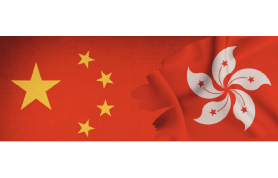|
As the world marks International Human Rights Day this week, The International Bar Association’s Human Rights Institute, The 29 Principles, Hong Kong Watch, The Rights Practice, Lawyers’ Rights Watch Canada, Lawyers for Lawyers, Free Tibet and Tibetan Community in Britain, urge the People’s Republic of China (‘China’) to take urgent action to ensure respect for human rights and observe the rule of law.
The undersigned organisations are gravely concerned about ongoing, widespread violations of the rights of lawyers by the authorities in China and the Hong Kong Special Administrative Region (‘Hong Kong’). This includes arbitrary detention, illegitimate criminal prosecution, unfair trials, enforced disappearance, torture and other inhuman or degrading treatment or punishment.
In China, the legislative and regulatory framework governing the professional duties of lawyers and law firms systematically undermines their independence and represses activities perceived to support political dissent. We are concerned that lawyers have been punished under the Administrative Measures for the Practice of Law by Lawyers for simply conducting their professional services. This includes challenging the lawfulness of court proceedings in court or online, publicising accusations that their client had been tortured or criticising the government’s persecution of lawyers. Lawyers have also been accused of ‘hyping a case’ when they dispute the government’s case or allege that the case is politically motivated or contrary to the rule of law. Not only does this impact the rights of lawyers, but it also prevents them from providing essential legal services to defend the rights of all individuals. This has a particular impact on individuals and groups who face widespread discrimination within China, such as persons from the Uyghur and Tibetan communities. Interference with the legal profession has led to individuals from these communities being denied access to a lawyer or the opportunity to prepare an adequate defence, leading to arbitrary detention, unfair trials, torture and other rights violations.
We also deplore the fact that detained lawyers in China are routinely subjected to Residential Surveillance at a Designated Location (RSDL), which involves incommunicado detention prior to arrest for up to six months in an undisclosed location. UN experts have stated that RSDL is ‘tantamount to enforced disappearance’. Lawyers held in RSDL have been subjected to torture and ill-treatment, including prolonged interrogations, sleep deprivation, loud noise harassment, being bound to an iron ‘tiger chair’ for days at a time, and a lack of adequate food and hygiene facilities.
We are also deeply concerned about the repressive use of the National Security Law (NSL) in Hong Kong and the renewed use of the Sedition Law. The NSL contains restrictions on defence lawyers that may not be compatible with a defendant’s right to prepare an adequate defence. To the extent that the law allows for undue restriction of other procedural guarantees, this violates the internationally recognised right of a fair trial. |
The risks faced by lawyers, simply for practising their profession, are illustrated by the following cases:
|

|
ENDS |
|
For further information, please contact: the IBA Human Rights Institute at [email protected] |
|
Notes to the Editor
|




